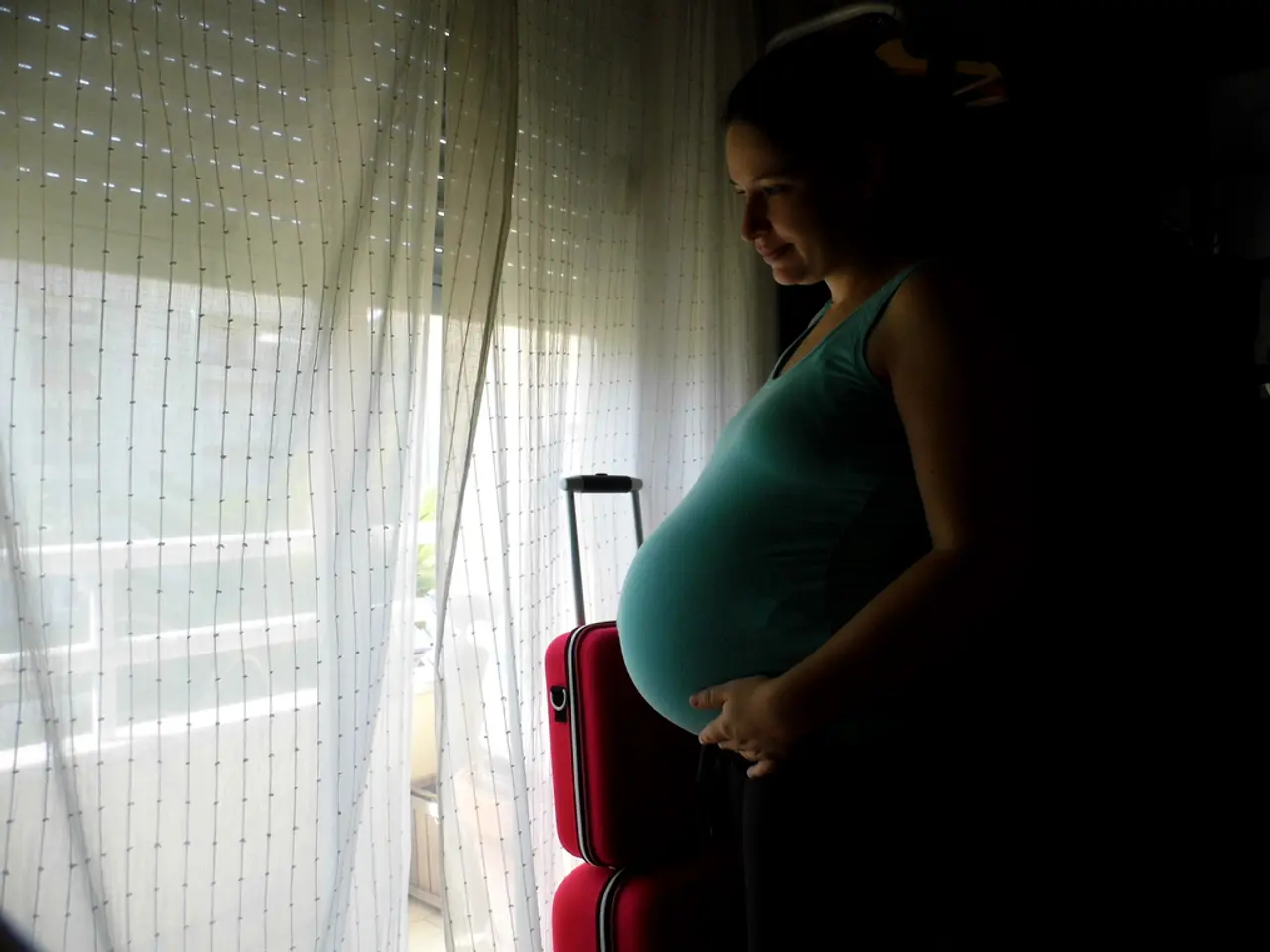Miscarriage Occurring Late in Pregnancy - Causes, Signs, and Healing Process
Miscarriages, the loss of a baby within 20 weeks of conception, can be a distressing experience for expectant parents. While miscarriages are more common in the first trimester, late miscarriages can occur between weeks 13 and 20. This article aims to provide insight into the causes, recovery, and prevention of late miscarriages.
A late miscarriage is defined as pregnancy loss between approximately 13 and 24 weeks. Common causes include womb or cervical dysfunction, uterine abnormalities, uterine infections, placental problems, and poorly controlled maternal health conditions.
Cervical insufficiency, or a weakened cervix, can cause the cervix to dilate prematurely, leading to a late miscarriage. Uterine abnormalities, such as fibroids or an abnormally shaped uterus, can interfere with fetal development and increase the risk of miscarriage. Infections of the uterus or placenta can trigger late miscarriage through inflammation or disruption of fetal support.
Placental complications, such as placental abruption (premature separation of the placenta) or placenta accreta (placenta invading the uterine wall), can cause bleeding and fetal loss later in pregnancy. Maternal conditions such as poorly controlled diabetes or autoimmune diseases can also contribute to late pregnancy loss.
While the exact cause of a late miscarriage may not always be known, it's important to consult a doctor regularly during recovery. After a late miscarriage, there may be continuous bleeding, feelings of tiredness and pain, and other physical changes that require special care for recovery.
After a miscarriage, a wide range of emotions may be experienced, including anger, frustration, guilt, sadness, or jealousy. Emotional support is crucial for recovery. Reaching out to people who have had miscarriages in the past can provide constructive ways to get back to normalcy.
It's important to avoid alcohol, drugs, and unnecessary medication during pregnancy. Working women should consult their doctor to determine the right time to return to work. Maintaining a healthy diet, exercising regularly, and living in a clean environment can help reduce the chances of a miscarriage.
If trying to get pregnant again after a late miscarriage, it's important to stay healthy, maintain a healthy diet, exercise, and live in a clean environment. Some physical problems such as a septum or a wall in the uterus may need to be corrected before trying to get pregnant again.
If breast milk production causes pain, consult a doctor for pain relief measures. In most cases, there is no need to register the loss of a baby before 24 weeks of pregnancy, but parents can request a birth certificate if they wish to formally recognize their baby.
It's important to note that the information provided in this article is not intended to replace professional medical advice. If you have a chronic disease, consult your doctor on how to control it before trying to get pregnant again. Obese and underweight women have an increased chance of miscarriage, so it's important to maintain a healthy weight.
Post-miscarriage recovery may take several weeks. Consulting a doctor on how to have a safe pregnancy and getting continuously monitored is crucial for a healthy pregnancy after a miscarriage. Period-like bleeding and cramps are common during recovery.
Taking precautions such as proper exercise, a well-balanced diet, avoiding alcohol and drugs, limiting caffeine, and controlling blood sugar and blood pressure can help reduce the chances of a miscarriage. Asking a doctor for guidance to counselling sessions or support groups can be helpful during this difficult time.
[1] American Pregnancy Association. (n.d.). Late Miscarriage. Retrieved from https://americanpregnancy.org/pregnancy-complications/late-miscarriage/ [2] Mayo Clinic Staff. (2020, November 18). Miscarriage. Retrieved from https://www.mayoclinic.org/healthy-lifestyle/pregnancy-week-by-week/in-depth/miscarriage/art-20047761 [3] National Health Service (NHS). (2020, October 27). Placenta Abruption. Retrieved from https://www.nhs.uk/conditions/placenta-abruption/ [4] National Health Service (NHS). (2020, October 27). Placenta Accreta. Retrieved from https://www.nhs.uk/conditions/placenta-accreta/
- Late miscarriages, happening between weeks 13 and 24 of pregnancy, could be caused by womb or cervical dysfunction, uterine infections, placental problems, maternal health conditions, or cervical insufficiency.
- In post-miscarriage recovery, maintaining a healthy diet, exercising regularly, and living in a clean environment can help, while it's important to consult a doctor for guidance on pain relief measures, controlling any chronic diseases, and returning to work.
- In an effort to prevent late miscarriages, women can follow the advice from reliable healthcare sources, such as maintaining a healthy weight, avoiding alcohol and drugs, and seeking emotional support when trying to conceive again.




